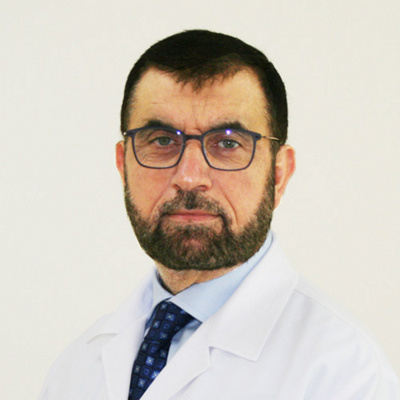Transcatheter Aortic Valve Replacement (TAVR)

Aortic valve stenosis — or aortic stenosis — occurs when the heart's aortic valve narrows. This narrowing prevents the valve from opening fully, which obstructs blood flow from your heart into your aorta and onward to the rest of your body. Aortic stenosis can cause chest pain, fainting, fatigue, leg swelling and shortness of breath. It may also lead to heart failure and sudden cardiac death.
Transcatheter aortic valve replacement (TAVR) is a minimally invasive procedure to replace a narrowed aortic valve that fails to open properly (aortic valve stenosis). Transcatheter aortic valve replacement is sometimes called transcatheter aortic valve implantation (TAVI).
TAVR used to be an option for people who are considered at intermediate or high risk of complications from surgical aortic valve replacement, but recently proved to be effective in most if not all patients.
The decision to treat aortic stenosis with TAVR is made after consultation with a multidisciplinary group of medical and surgical heart specialists who together determine the best treatment option for each individual.
You may receive local anesthesia before the TAVR procedure. A treatment team member will give you medication through an intravenous line to prevent blood clots.
Your treatment team will monitor your heart function and rhythm, and watch for changes in heart function that may occur. Changes in function can be managed with treatments as needed during the procedure.
During TAVR, doctors may access your heart through a blood vessel in your leg.
After the procedure
You may spend the night in the intensive care unit for monitoring after your procedure. Generally you'll spend about one or two days recovering in the hospital.
You'll need to take blood-thinning medications to prevent blood clots after the procedure. Your doctor will discuss with you how long you may need to take these medications.
Evolving indications for the use of TAVI have led to a series of paradigm shifts in the treatment of severe symptomatic aortic stenosis. According to a position statement issued at many scientific meetings, TAVI should now be favoured over surgical aortic valve repair (SAVR):
“The favourable outcomes of TAVI are consistent across the entire risk spectrum, suggesting that surgical risk estimation is no longer the basis to guide the choice between TAVI and SAVR.”
TAVR also demonstrated better outcomes than surgery for stroke and major vascular complications, although the rate of permanent pacemaker implantation was higher with TAVI than SAVR.
In addition, the relative risk reduction for mortality at two years was 17% for TAVI when access was via the transfemoral route.
TAVR may also be an option if you have an existing biological tissue valve that was previously inserted to replace the aortic valve, but is not working well anymore.
The CoreValve™ Evolut™ PRO is the newest transcatheter aortic valve replacement (TAVR) system by global medical technology developer Medtronic. The self-expanding device is intended to treat patients with severe aortic stenosis who are considered at high or extreme risk for open heart surgery.
Mediclinic City Hospital performed the first CoreValve™ Evolut™ PRO procedure in the Middle East, Africa, Central Asia and Turkey (MEACAT), making the UAE the pioneer of yet another technological breakthrough in the field of medicine in the region.
The procedure was performed by leading consultant interventional cardiologist Dr. Talib Majwal at the hospital in Dubai Healthcare City. Dr. Majwal successfully completed the percutaneous coronary interventional procedure by inserting an advanced transcatheter aortic valve replacement using femoral access.
The Evolut™ PRO System offers unique value design and advanced sealing technology to enhance valve sealing performance and in turn addresses the occurrence of blood leaking through the sides of the valve. Preventing leakage in turn leads to preserving patients’ heart muscles for an elongated period of time.
The Evolut™ PRO technology is proven to allow for faster recovery of patients as well as cause fewer complications compared to other technologies.


